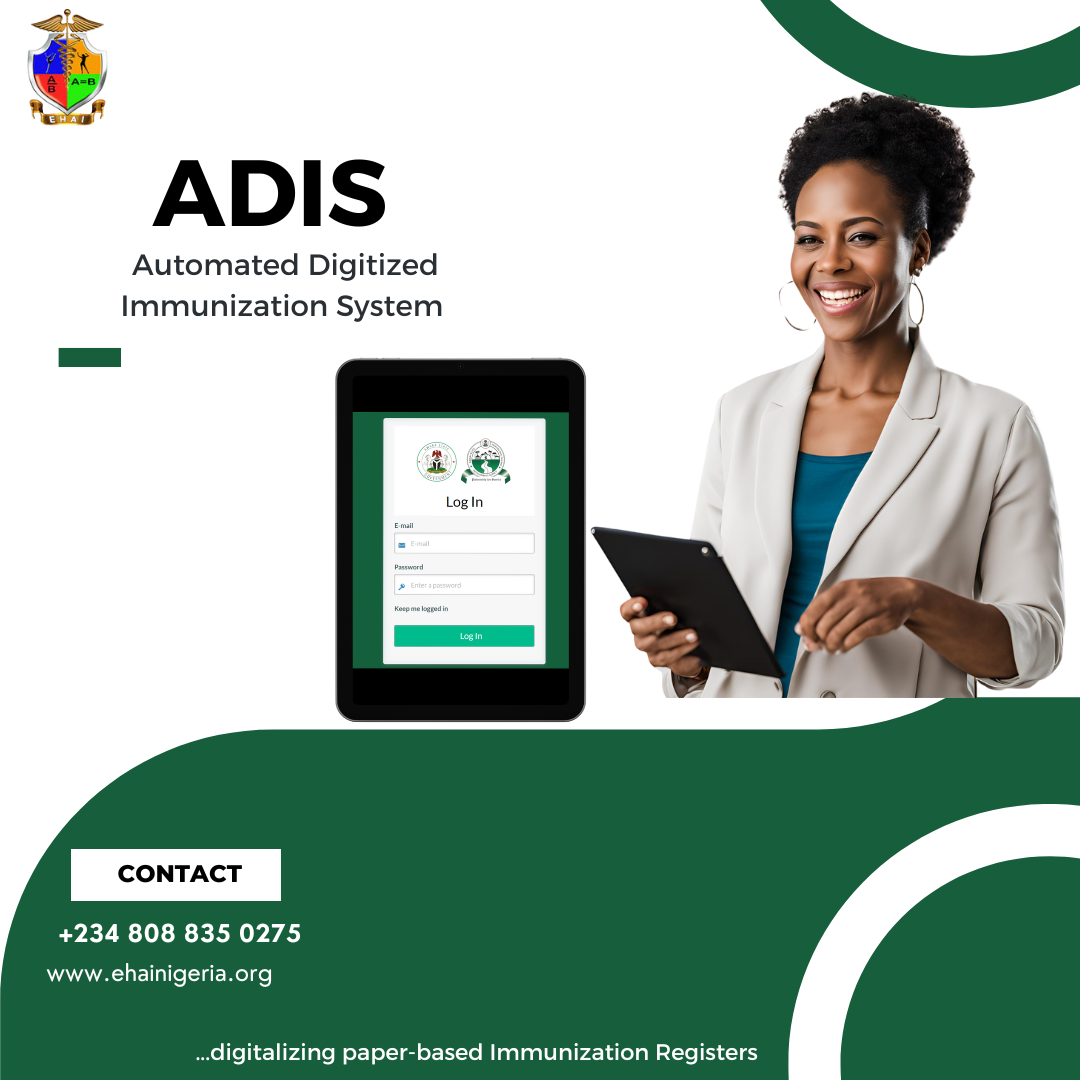In today’s technology-driven world, EHAI Nigeria is a nonprofit organization with over 11 years of experience. It is harnessing digital tools to improve access to quality, fair, and affordable healthcare services.
One of its standout innovations is the Automated Digitised Immunization System (ADIS). It is designed to transform immunisation efforts in Nigeria. The need for improved healthcare access in the country is urgent.
With 2.2 million zero-dose children, the second-highest number globally, Nigeria faces critical challenges in healthcare delivery. The country also has the highest under-five mortality rate, which is often due to vaccine-preventable diseases.
EHAI’s ADIS project is funded by the Pfizer Foundation’s Global Health Innovative Grant. It aims to digitize routine immunization processes. The project also aims to overcome barriers contributing to under-immunization. ADIS was developed in partnership with the Kwara State Primary Healthcare Development Agency. It addresses core issues through extensive collaboration with immunization officers. Policymakers and other stakeholders are also involved in this collaboration.
Key features of ADIS include:
- Electronic Immunization Register (EIR): It involves digital transformation of paper-based records into an EIR. This system integrates with antenatal care systems. It tracks pregnant women. It also ensures newborns are linked to immunization programs.
- Automated Notifications: SMS reminders for caregivers about upcoming vaccinations, and automated lists for healthcare workers on children due for vaccinations.
- Defaulter Tracking: Community volunteers get defaulter lists via email to guarantee prompt follow-ups.
- Behavioral Change Messaging: Social and Behavioral Change Communication (SBCC) messages are sent to caregivers to promote immunization and dispel myths.
- Robust Data Security: A secure cloud platform with multiple levels of user access, ensuring sensitive data protection.
- Data Review and Analysis: Policymakers can access real-time data to inform decision-making and improve immunization strategies.
By digitizing immunization records and processes, ADIS is already making a tangible impact. Since its launch, the project has digitised records for over 15,000 children. It has trained 65 healthcare workers and 24 community volunteers. The project has also received positive feedback from healthcare professionals and the community.
ADIS goes beyond its core immunization aim. It also focuses on enhancing HPV vaccine uptake among girls aged 9-14. This group is a crucial demographic for preventing cervical cancer. The platform sends automated reminders, promotes HPV vaccination, and addresses vaccine hesitancy through targeted messaging.
Nigeria continues to strengthen its healthcare systems. ADIS is playing a vital role in the country’s public health efforts. It sets the stage for improved health outcomes for children and women. This aligns with broader national health goals.
EHAI is committed to leveraging technology for healthcare advancement. This commitment underscores its vision of fair healthcare delivery for all Nigerians. They aim to overcome socio-economic or geographic barriers.



